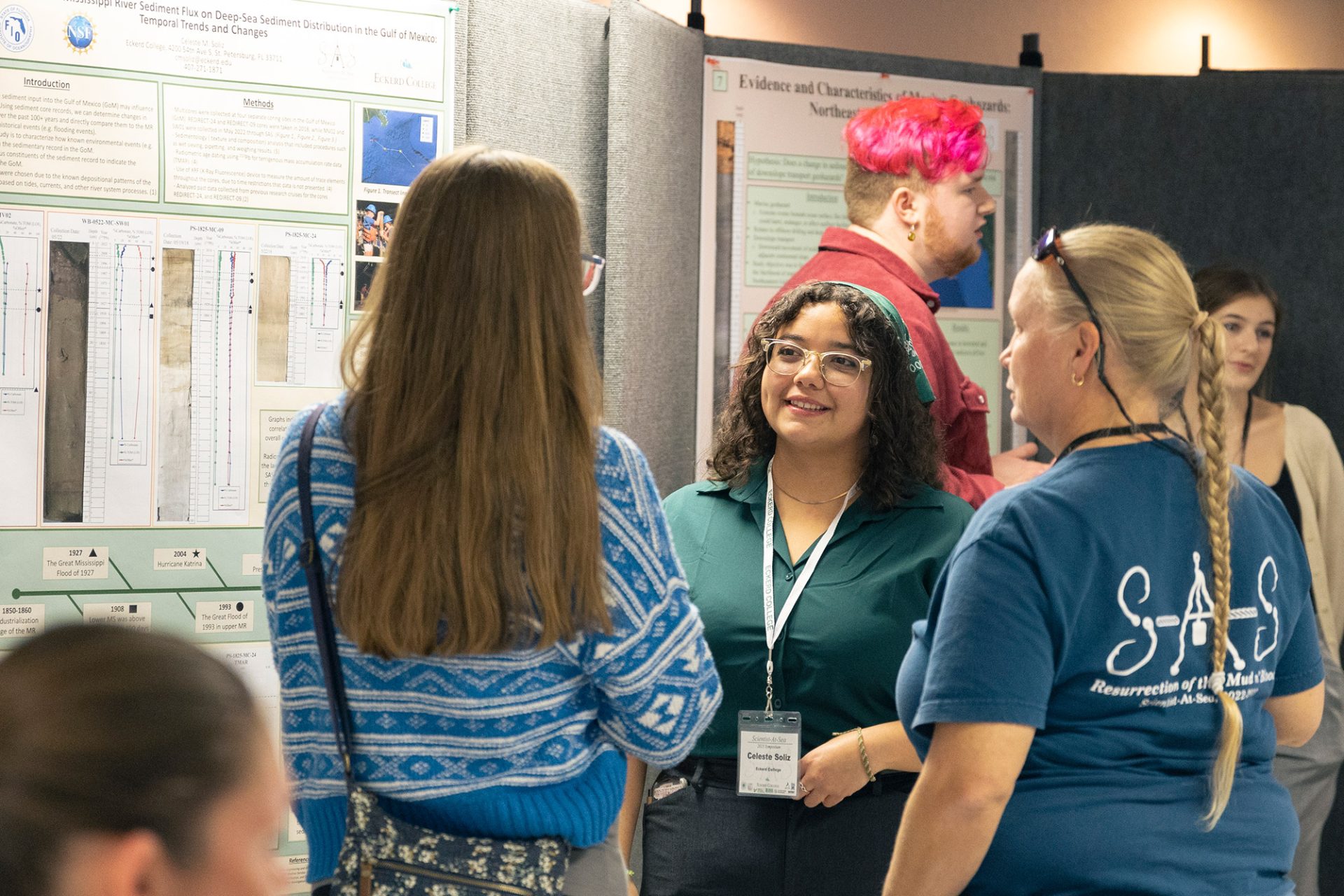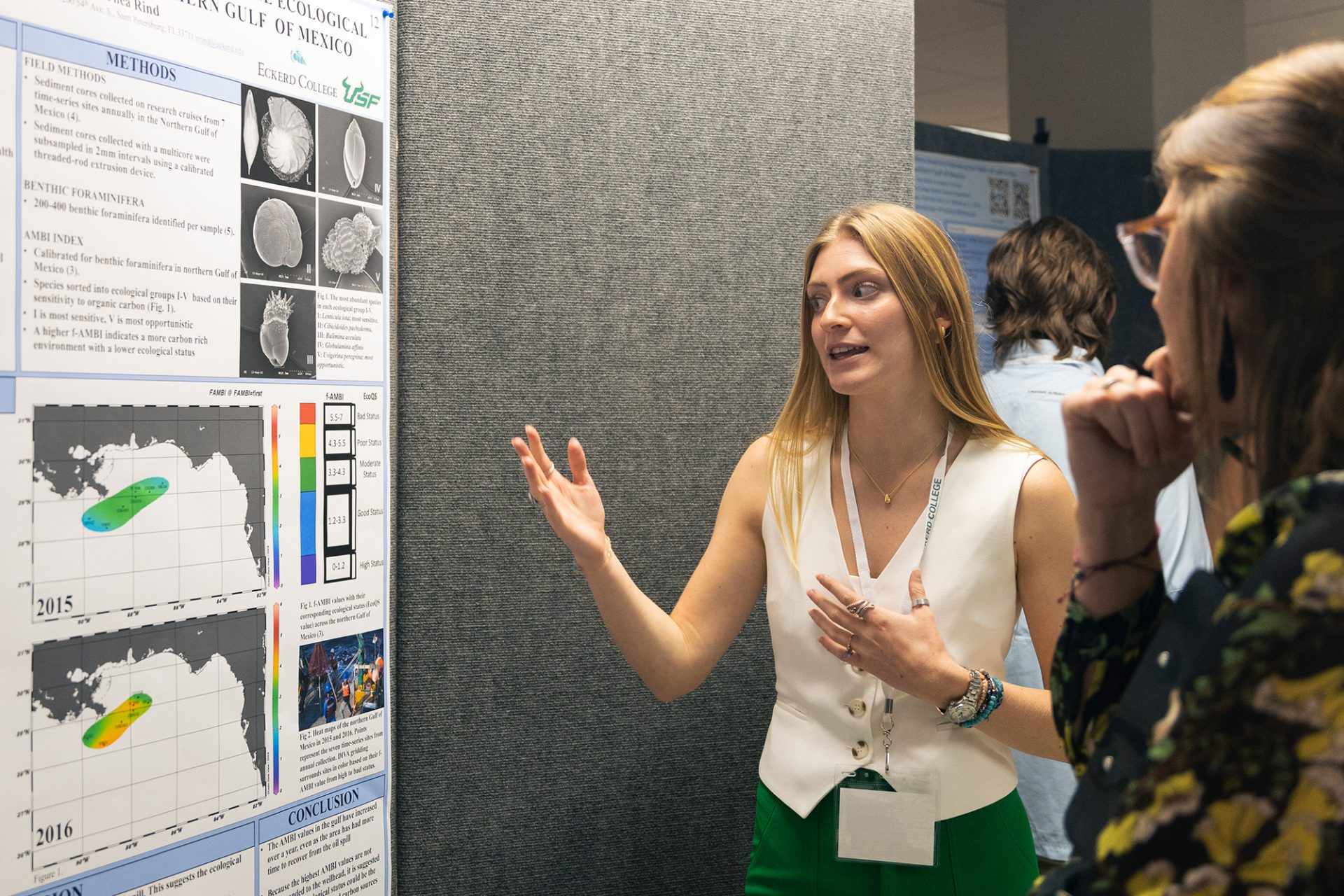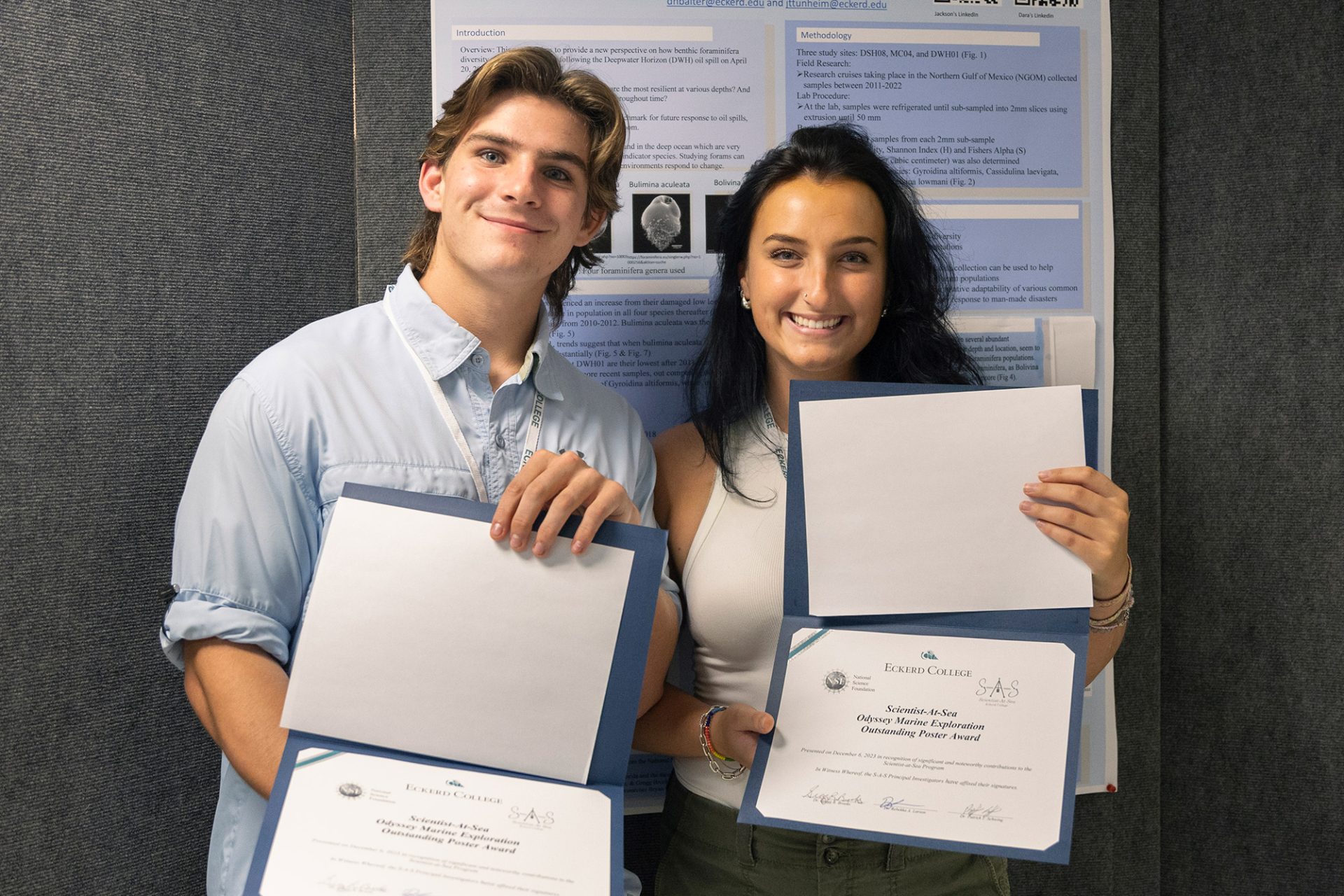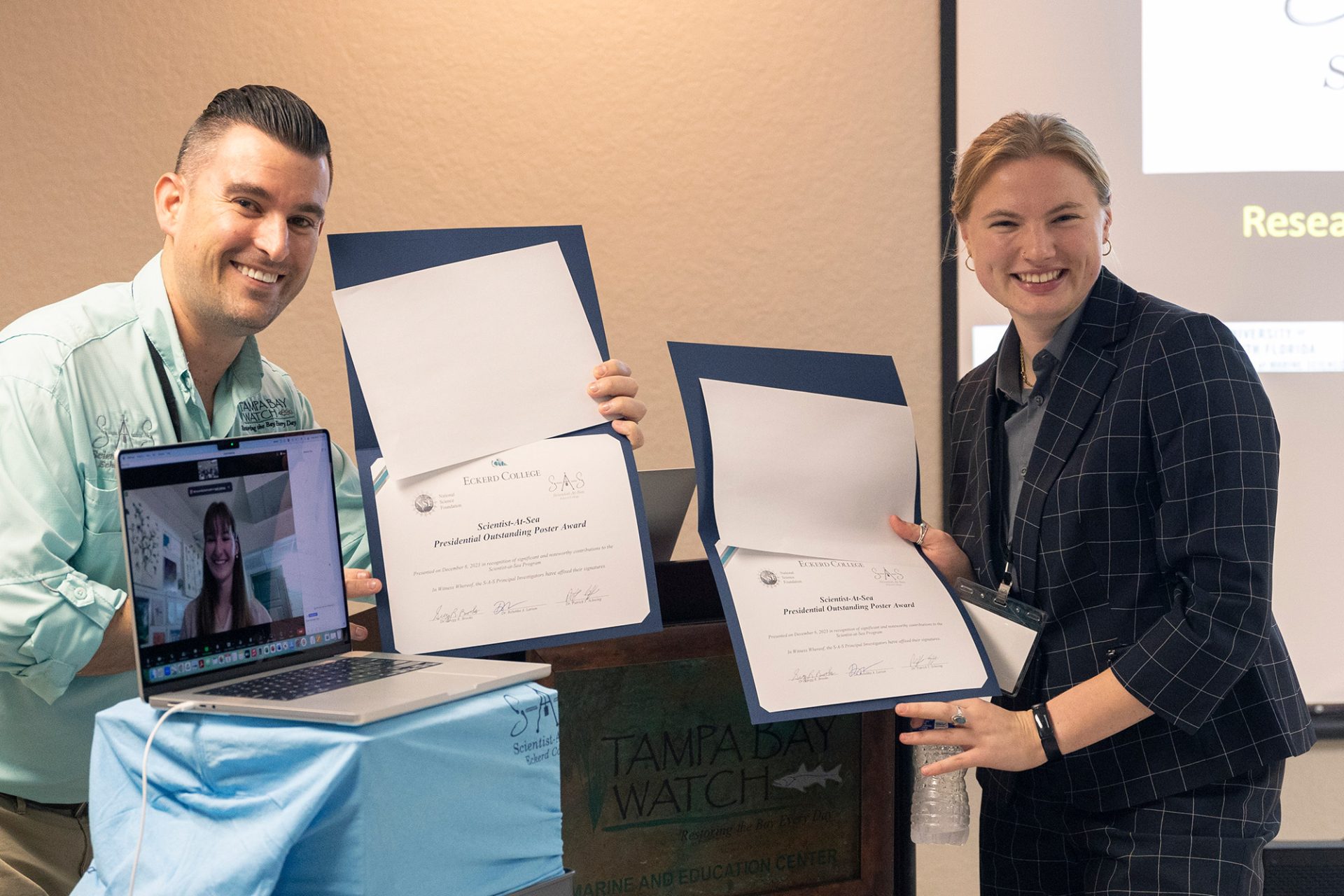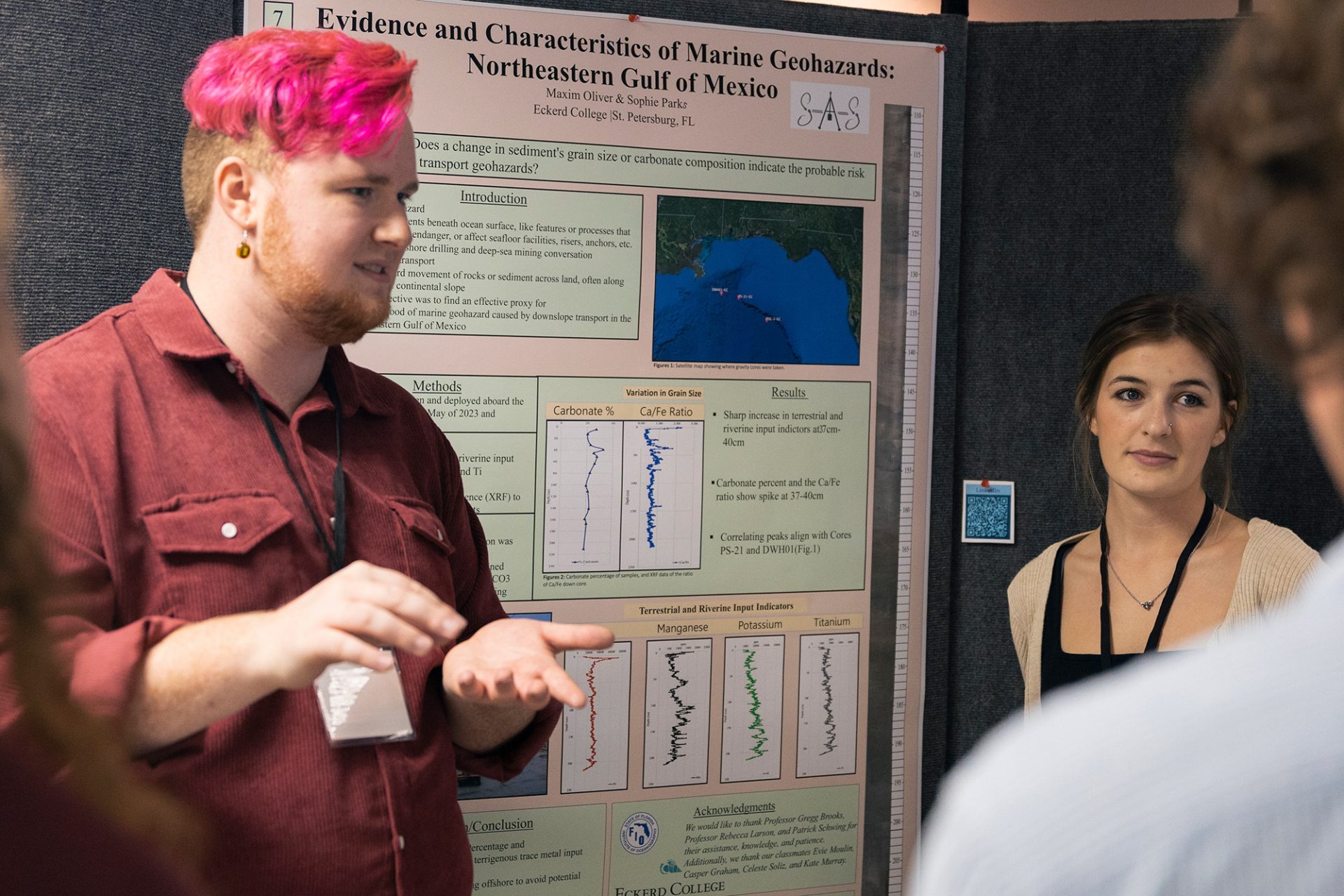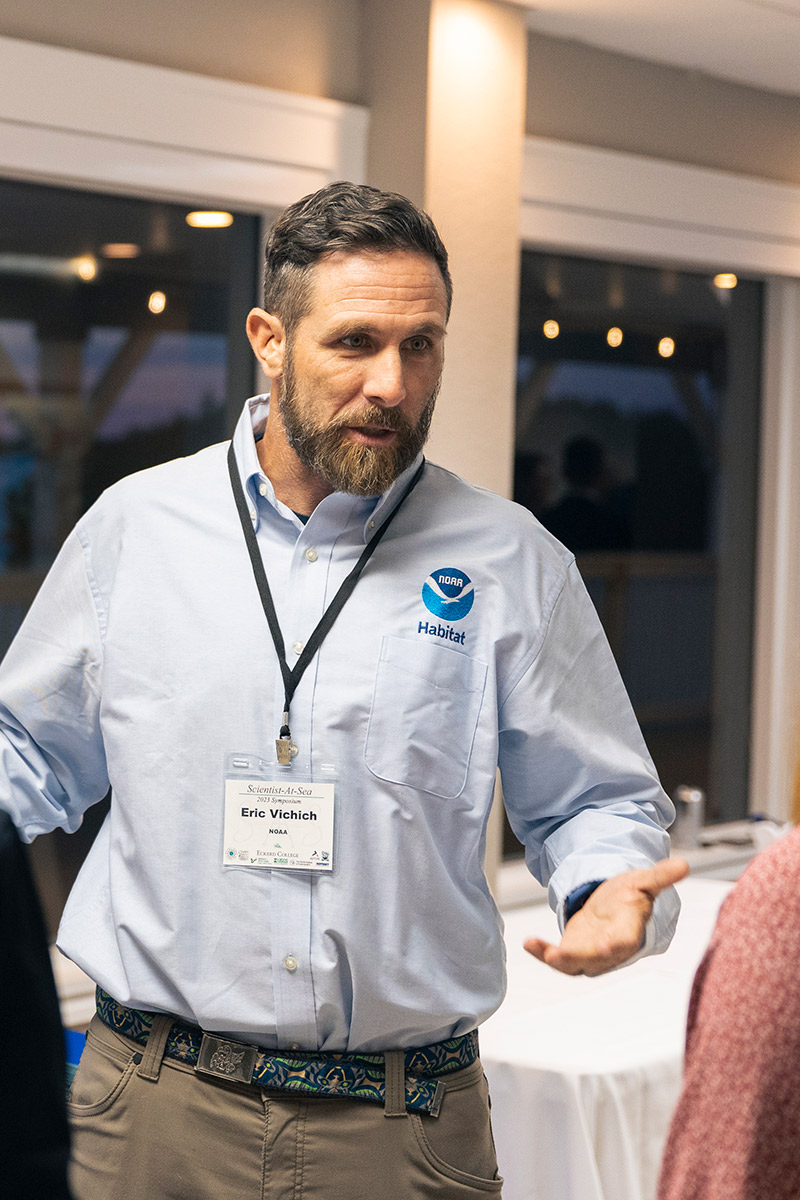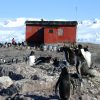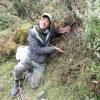During the night shift on the deck of the RV Weatherbird II, Eckerd College sophomore Thea Rind found peace in the pitch-black calm of the northern Gulf of Mexico.
“It was my first time doing field research and such an interesting experience,” recalls the marine science student from Summit, New Jersey. “We were multicore drilling from 6 p.m. to 6 a.m., and it was much different than I thought it would be.”
Thea used samples from the sediment core collected to create the research project “Using Benthic Foraminifera to Determine Ecological Status Throughout the Northern Gulf of Mexico.” She hypothesized that the microscopic organisms eaten by snails (foraminifera) have been experiencing less effects from the Deepwater Horizon oil spill since 2016 and more from the nutrient-rich runoff of the Mississippi River.
Her thorough analysis earned her the $300 APTIM Poster Award at the Second Annual Eckerd College Scientist at Sea Research Symposium on Dec. 6 at Tampa Bay Watch, in Tierra Verde, Florida.
“It was very shocking,” Thea explains. “I was not expecting to win anything. I was just grateful for the opportunity to present this research that I’d done, to people who work in the field.”
The research poster division, judged by marine scientists and geoscience professionals, awarded prizes to four presentations of the 17 student projects on display. The Odyssey Award was given to “Investigating Benthic Foraminifera Diversity Following the DWH Oil Spill in the Northern Gulf of Mexico,” by Jackson Tunheim ’25 and Dara Balter ’25. And the President’s Award went to “Long Term Time Particulate Flux from a Sediment Trap in the Northern Gulf of Mexico,” by Rosalie K. Cruikshank ’25, and “Characterization of RA-226 Activity in the Gulf of Mexico Over a 1,500 Meter Depth Profile,” by Rachel Flickinger ’25.
The detailed research was made possible by a 2021 National Science Foundation grant of $389,413 to Eckerd with the goal of increasing the number and diversity of students entering the geoscience workforce.
Professor of Marine Science and Geosciences Gregg Brooks, Ph.D., says when he came to St. Petersburg in the 1970s, at the top of his list was taking a class called Scientist at Sea, from the University of South Florida’s catalog.
“They told me they had never offered that class,” Brooks says with a laugh. “So when we were naming our program, I thought, We’ll name it Scientist at Sea.”
Unique to Eckerd, Scientist at Sea (Parts A and B) consists of on- and off-campus research, peer mentorship, and networking opportunities.
Marine Science Instructor Rebekka Larson ’01 says every Scientist at Sea student spends the beginning of the course planning their research cruise, takes the cruise over the summer, uses their samples to craft their projects in the fall, and concludes the semester with a presentation at a professional symposium sponsored by Tampa Bay Watch, Odyssey, United States Geological Survey, the Florida Institute on Oceanography, APTIM, and Eckerd College President James Annarelli, Ph.D.
“We essentially ask them to stop being a student and start being a researcher,” Larson says.
The results speak for themselves.
The 2022 Scientist at Sea cohort featured students from sophomores to seniors. The seniors managed to find full-time employment at Fugro, USGS and Eckerd College and be admitted to the University of Miami (Ohio). One underclass student earned a National Oceanic and Atmospheric Administration Great Lakes Environmental Research Lab Fellowship. During the summer following their Scientist at Sea research cruises, students were hired for internships at USGSS, APTIM’s Strive program, Roatan Institute for Marine Sciences, University of Southern California Wrigley Institute for Environment and Sustainability, Annis Water Resources Institute at Grand Valley State University, and a Fulbright Canada-Mitacs Internship with the University of Toronto. They also picked up part-time jobs at One Ocean Expedition, Sail Caribbean summer camp, the EcoTarium Science Museum and Eckerd College.
Jackson Tunheim says the opportunity to participate in Scientist at Sea was an amazing opportunity he learned about after choosing Eckerd. The junior marine science student and rugby captain from Denver, Colorado, spent his childhood moving from Australia to India to Bangladesh and relished the idea of learning marine science on a campus where the Gulf of Mexico is steps from the classroom.
“Eckerd really allows you to dive in headfirst and immerse yourself in these fields,” Jackson says. “You just have to use your resources. A lot of the research you read on these topics is authored or co-authored by Professor Brooks or [Assistant Professor of Marine Science Patrick] Schwing [’06, Ph.D.]. Having access to their knowledge is really invaluable.”
Both Thea and Jackson can more clearly envision careers in geoscience research thanks to the Scientist at Sea program.
“The outcomes have been outstanding,” Brooks says.





